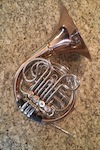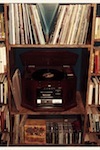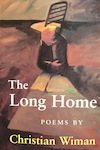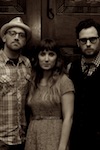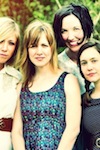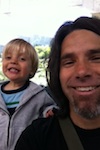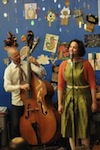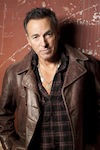My mother adored Daddy, as she called him, but she swooned for Ravel. Family legend has it that a recording of Ravel’s best known piece, Bolero, which somehow turned up in my mother’s possessions when in high school, was promptly destroyed, being deemed far too sensuous for the impressionable oldest daughter of a Swedish Baptist preacher. And she could painfully recall not being able to attend a friend’s birthday party as a child in Pasadena, because the planned activity for the group was to see a movie — a novel, rare treat in 1930. The first time I saw the film Babette’s Feast, I had some inkling of the dilemma my mother’s upbringing must have wrought in her blossoming creative life, as it would later in mine.
 Now, certainly I am grateful for the cheerful mechanic who diagnosed and replaced my broken alternator last Christmas Eve. And I owe a great deal to the tailor who salvaged the almost-brand new red leather shoes I’d spilled jojoba oil on. But that does not diminish my own satisfaction from improvising an oil plug gasket by sewing together part of a leftover ring from a battery-cleaning kit. Nor does it dim the delight of successfully building a new pad for a seatless chair frame I found on the street.
Now, certainly I am grateful for the cheerful mechanic who diagnosed and replaced my broken alternator last Christmas Eve. And I owe a great deal to the tailor who salvaged the almost-brand new red leather shoes I’d spilled jojoba oil on. But that does not diminish my own satisfaction from improvising an oil plug gasket by sewing together part of a leftover ring from a battery-cleaning kit. Nor does it dim the delight of successfully building a new pad for a seatless chair frame I found on the street. Now, certainly I am grateful for the cheerful mechanic who diagnosed and replaced my broken alternator last Christmas Eve. And I owe a great deal to the tailor who salvaged the almost-brand new red leather shoes I’d spilled jojoba oil on. But that does not diminish my own satisfaction from improvising an oil plug gasket by sewing together part of a leftover ring from a battery-cleaning kit. Nor does it dim the delight of successfully building a new pad for a seatless chair frame I found on the street.
Now, certainly I am grateful for the cheerful mechanic who diagnosed and replaced my broken alternator last Christmas Eve. And I owe a great deal to the tailor who salvaged the almost-brand new red leather shoes I’d spilled jojoba oil on. But that does not diminish my own satisfaction from improvising an oil plug gasket by sewing together part of a leftover ring from a battery-cleaning kit. Nor does it dim the delight of successfully building a new pad for a seatless chair frame I found on the street.














